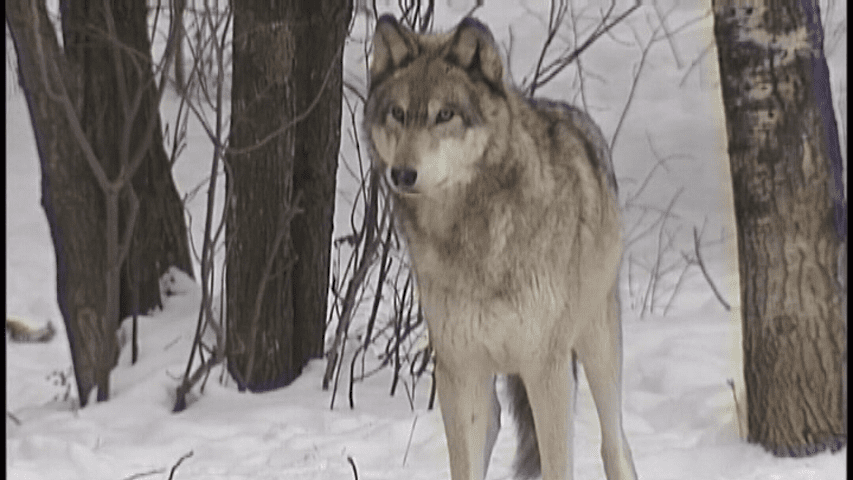Animal welfare advocates file lawsuit challenging Wisconsin’s new wolf management plan

(WDIO, File)
MADISON, Wis. (AP) — Animal welfare advocates filed a lawsuit Wednesday seeking to invalidate Wisconsin’s new wolf management plan, accusing state wildlife officials of violating the state’s open meetings law and disregarding comments from wolf researchers and supporters.
The lawsuit reflects how contentious the debate over wolf management has become in Wisconsin. Farmers in northern Wisconsin have complained for years that the population is multiplying too quickly and preying on their livestock. Hunters argue wolves are devastating the deer population across the northern reaches of the state. Conservationists believe that wolves have yet to firmly establish themselves in Wisconsin and need protection.
The Great Lakes Wildlife Alliance, also known as Friends of the Wisconsin Wolf and Wildlife, filed the latest lawsuit in Dane County Circuit Court. The organization describes itself as a statewide group of hunters, farmers, politicians, business owners and animal welfare advocates who support science-based conservation.
The lawsuit alleges that Department of Natural Resources policy board members collected comments on the plan from interest groups it favored even after the public comment period ended in February.
Board members attended private discussions hosted by the Wisconsin Wildlife Federation, the Wisconsin Association of Sporting Dogs, and Wisconsin Wolf Facts in February, April and July, the lawsuit alleges. Great Lakes Wildlife Alliance members were not allowed at the April and July meetings, according to the lawsuit. The filing does not say if members were barred from the February meeting.
The lawsuit alleges that even though a quorum of board members didn’t attend any of the meetings, enough of them participated to influence changes to the plan. Adam Payne, the department secretary at the time, announced revisions were coming after the February talks with the organizations that favor further limiting the wolf population. That all amounts to violating open meetings statutes, according to the lawsuit.
The filing goes on to allege that DNR officials gave little weight to scientific studies questioning the accuracy of the department’s wolf population counts and comments warning that hunting and trapping wolves won’t reduce conflicts with humans. They also failed to evaluate the dangers of overhunting wolves, the lawsuit asserts, and allowed opinions and unverified accounts of wolf aggression against hunters to influence the plan. The lawsuit doesn’t cite any specific instances to back up those claims.
DNR spokesperson Molly Meister said when reached via email late Wednesday afternoon that she couldn’t comment on pending litigation.
The Department of Natural Resources adopted a wolf management plan in 1999 that called for capping the population at 350 wolves. The latest DNR estimates, however, indicate the population currently stands at around 1,000.
Republican legislators in 2012 passed a law requiring the DNR to hold an annual wolf hunting season. Hunters and farmers have pointed to the 350-wolf limit as justification for setting high kill quotas, angering animal rights activists.
A federal judge last year placed gray wolves in the lower 48 states back on the endangered species list, making hunting illegal and limiting farmers to nonlethal control methods, such as fencing in livestock or using guard dogs. The DNR has been working on an updated wolf management plan in case wolves are removed from the list and hunting can resume.
The department’s board finally approved a plan last month that recommends maintaining the statewide population at about 1,000 wolves, but doesn’t set a hard limit. It instead recommends allowing the population to grow or decline at certain numerical thresholds.
DNR officials called it a flexible compromise, but farmers and hunters have criticized the lack of a hard population cap. Republican lawmakers are advancing a bill that would force the DNR to insert a specific number in the plan.
—————
All contents © copyright 2023 Associated Press. All rights reserved